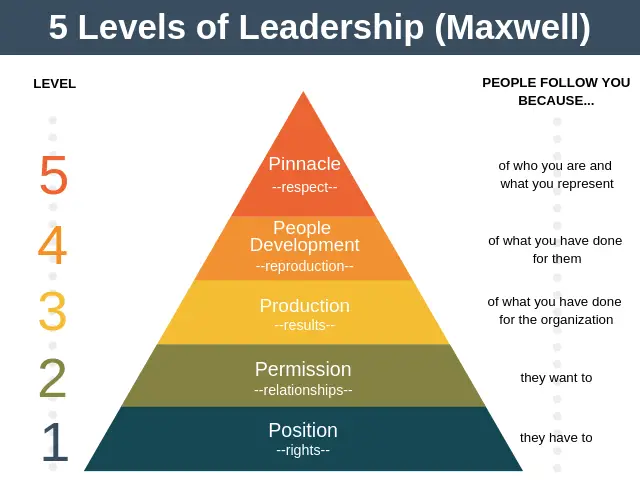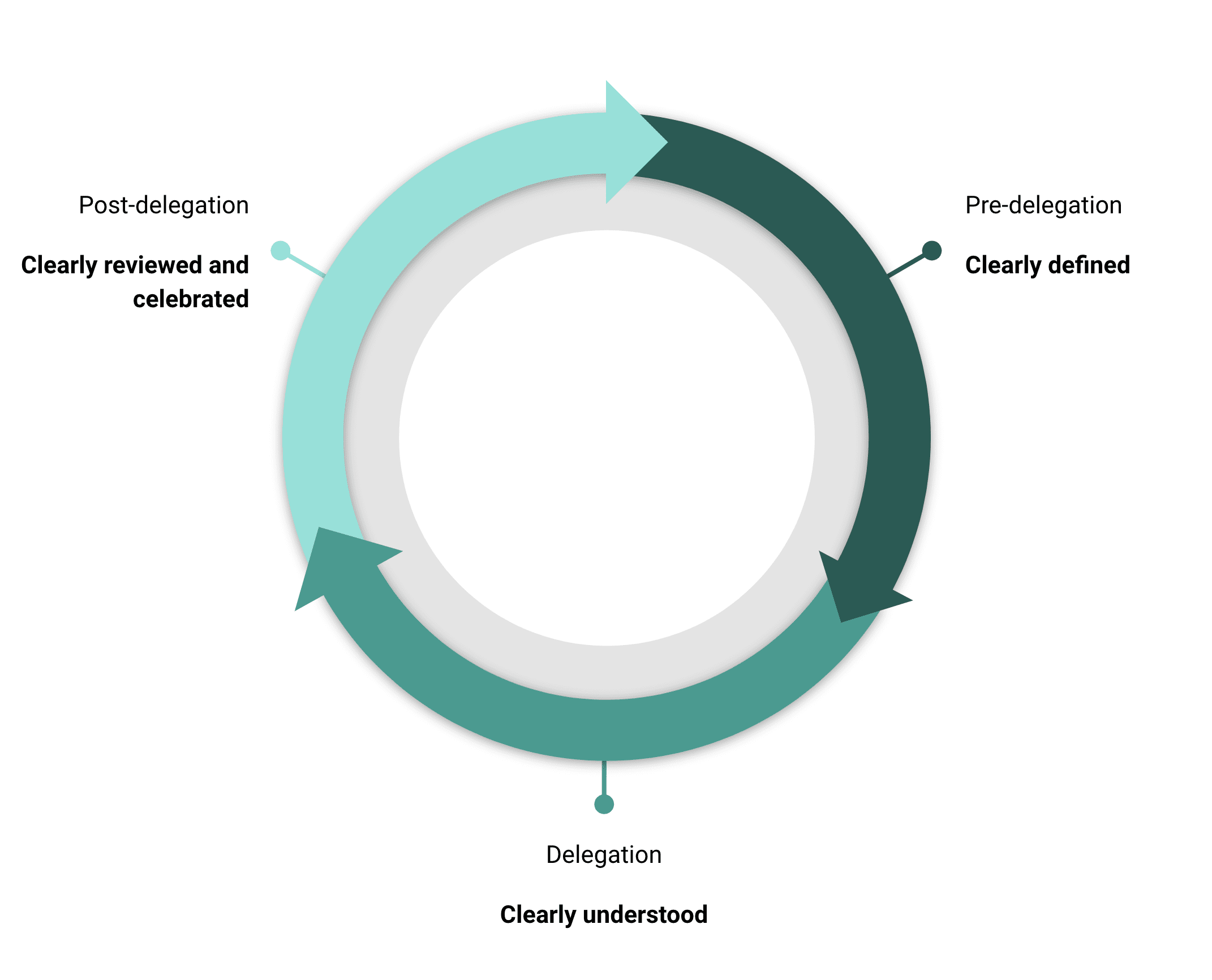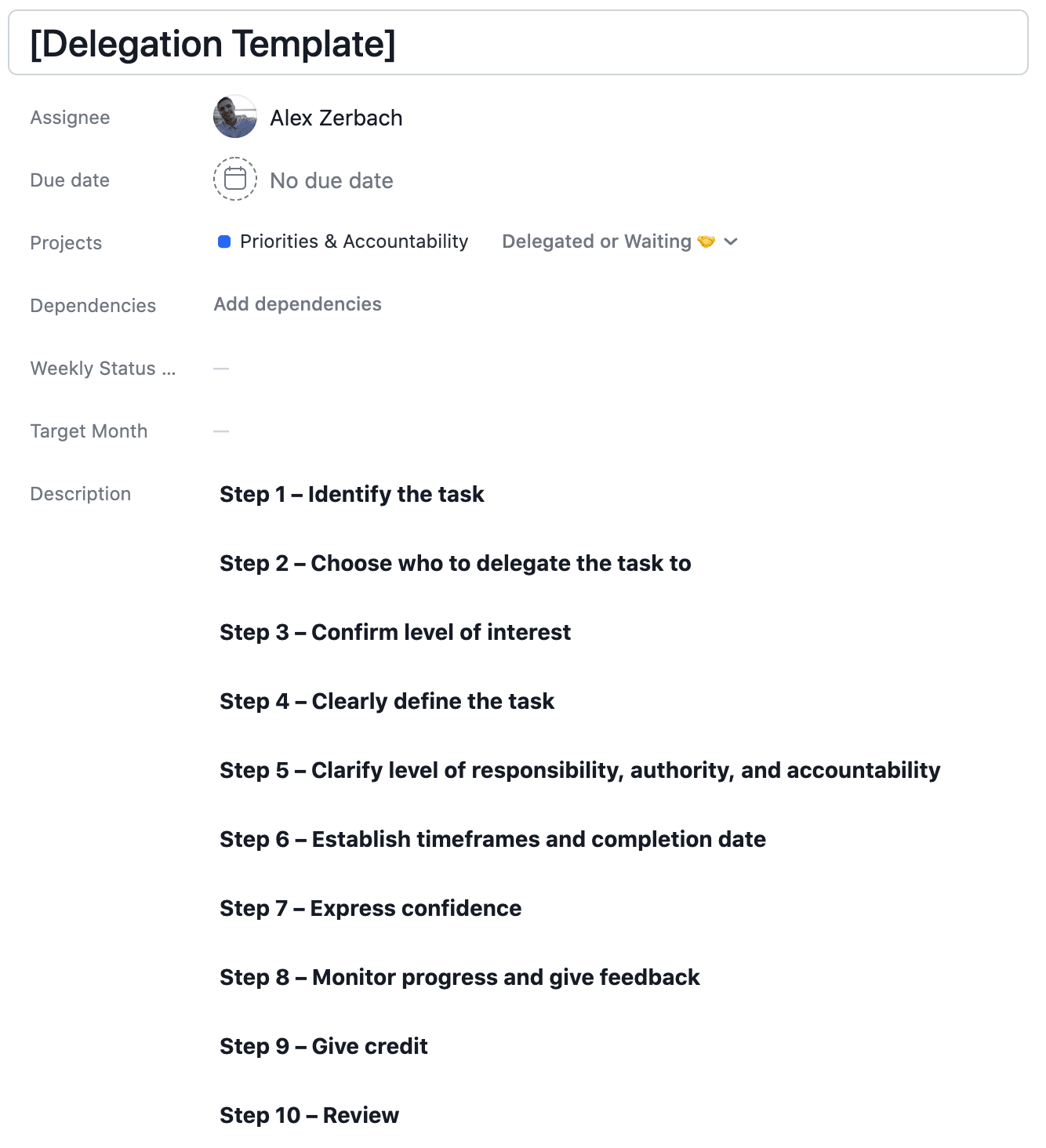Delegation
Delegation is simple in nature but hard to execute. As a young leader, I find delegation both incredibly rewarding and time-intensive. Below are my thoughts and experiences with delegation.
As my leadership responsibilities have grown, I have become more aware of my weaknesses. When you start leading vs managing you will quickly uncover the deficiency you have in your leadership skillet. I have dedicated 2020 and beyond to grow my skillset into the highest level of leader I can. I occasionally view John Maxwell’s example of level 5 leadership.

I feel very blessed to work for a company (Carrot) that is investing in me as a leader. We hired a leadership coach who helped me identify some mistakes in my delegation process. After much introspection and research here is what I have come to learn. These are only my experiences and there will always be exceptions to the rule.
The 3 Phases Of Delegation

#1 – Pre-delegation: This is getting prepared to delegate the task. Most leaders will reference materials like Simon Sinek’s Start With Why and making sure the person you are delegating to understand the core concept (why) before you give them the how/what.
#2 – Delegation: This is the part where you align on the task, resources, timeline, and expectation.
#3 – Post-delegation: This is where I often failed. If you don’t have check-ins, offer help, review the work, give praise/gratitude when it’s complete, and officially call it finished, you will find team members aren’t as eager or excited to take a “request” from you.
10-Step Delegation Checklist
The 3 phases above are great and all but the still leave gaps. Here is my 10-step process for delegation. If you can answer all 10 of these questions I strongly believe you will have a higher impact with your delegation and more consistent results.

Delegation Milestones
I recently attended a mastermind session with an expert on delegation giving a talk. He asked the room how many leaders viewed their delegation skills as strong. About 20% of the room put up their hands. He then asked, how many leaders have taught their direct reports delegation and have them delegating at a high level. Every single hand went down.
This was a light-bulb 💡 moment for me. We all know that learning something is one thing but teaching it is another. The impact you make with delegation goes beyond how well you can do it alone.
Below are how I view delegation milestones
- Curiosity
- Here are know there must be a better way to work and you are looking to have more impact. You’ve realized you don’t have enough time and need help.
- Education
- You start reading books and blog posts, listening to podcasts, seeking information about how others delegate
- Delegation
- You start delegating based on your learnings. Maybe you are a natural. Maybe you have inconsistent results like me.
- Improved Delegation
- You don’t give up and look for ways to improve/simplify the delegation process
- Experienced Delegation
- You consistently know when to delegate, how to delegate, and have great outcomes from your team
- Teaching Delegation
- You start to teach other leaders and team members how to delegate based on the milestones above.
- Delegation Process/Systems Organization-Wide
- You take all the milestones above and help the company develop systems and behaviors so anyone who wants to delegate knows exactly WHY, HOW, WHAT.
Delegation As Communication
Delegation isn’t a standalone activity. It’s one of the most important things a leader can have in his/her skillset. Delegation touches on communication, vision, empathy, time management, accountability and more.
It’s a great challenge to so many leaders because it can get really complex really fast. But at the core of delegation is clarity on why the task matters and how you communicate it.
Delegation Vs Abdication
There is a thin line between delegation and abdication. I have seen a situation like this unfold
- CEO asks Leader A to do something.
- Leader A asks manager B to get right on it.
- 2 weeks go by
- CEO asks Leader A how we are progressing
- Leader A doesn’t know and sends a terse message to manager B.
Q: Where was the break down? Was it Leader A or Manager B’s fault?
A: Leader A’s. You can delegate as much as you want – but you need to ultimately own the outcome.
This took me a while to understand but it’s a no-brainer now. You can pass along the responsibility and accountability to someone when you delegate, but you still own the ultimate outcome.
Everything you have not achieved in your organization is your fault. A great leader realizes his team can only grow as fast as he can lead them. Delegation is not abdication, you are still on the hook for the outcome and impact your team can make. If you want to increase the impact, improve you and your team’s ability to delegate.
Delegation vs Prioritization
What happens when you have too much to delegate that you can’t keep up with all the follow up?
Imagine trying to run this 10-step process with 15 open loops. Sound exhausting? It is.
That is where priorities come into play. Every thing you say “yes” to means you say “no” to hundreds of other things.
Saying “no” or “yes, but not right now” will scope and limit the amount of things you need to delegate.
The nice thing about tasks software (Trello, Asana, Clickup, Jira, etc.) is that you can collect ideas, priorities, etc and choose WHEN to delegate them.
Not everything should receive the same amount of priority or urgency. Learning how to delegate at the right time is just as important as learning to delegate well.
Join The Newsletter
Get occasional emails from me when I publish new projects and articles.